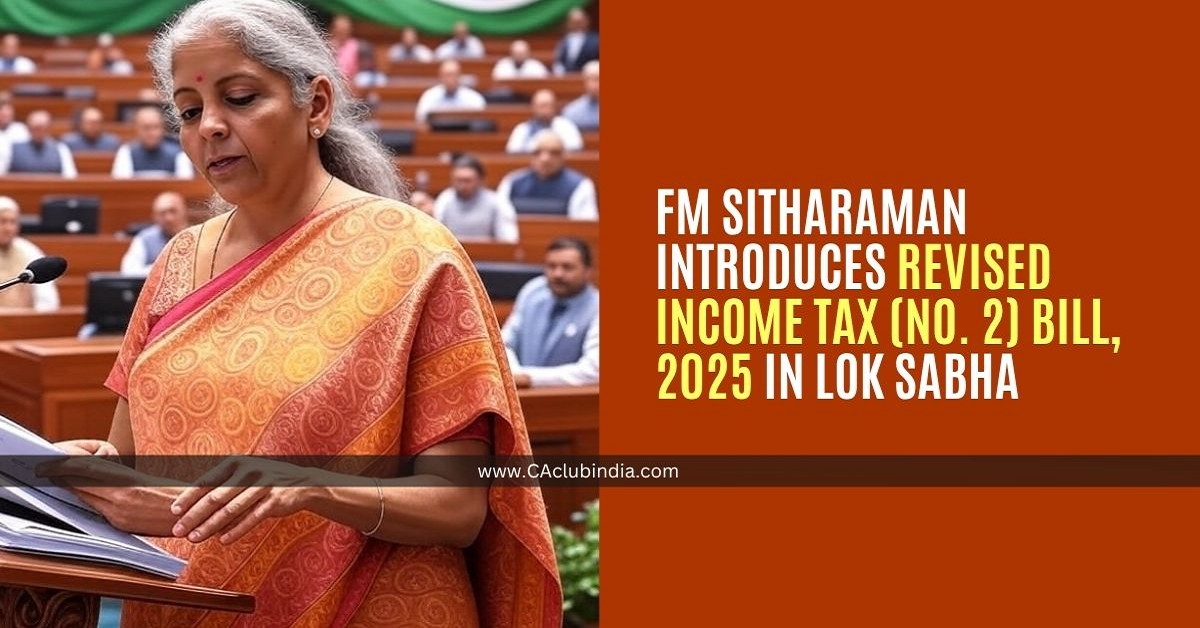FM Nirmala Sitharaman has tabled the Income-tax (No. 2) Bill, 2025 (Bill No. 104 of 2025) in the Lok Sabha, proposing a sweeping consolidation and amendment of India's income-tax law. Slated to come into effect from April 1, 2026, the Bill seeks to simplify provisions, rationalise definitions and modernise compliance mechanisms in line with the evolving economic and technological landscape.

Key Highlights of the Bill
- Complete Restructuring of Provisions: The Bill reorganises the law into clear chapters covering the basis of charge, computation of income, deductions, rebates, capital gains, special provisions for non-residents, anti-avoidance rules, tax administration, appeals, and prosecution.
- Revised Definitions: It updates and expands key terms such as "tax year," "capital asset," "charitable purpose," and "assessee," ensuring alignment with current business models, digital transactions, and international tax norms.
- Capital Gains & Exemptions: Provisions address a wide range of transactions, including distribution of assets, buy-backs, slump sales, and transfers to Special Economic Zones, with detailed exemption conditions.
- Special Regimes: Specific tax treatment is outlined for SEZ developers, start-ups, infrastructure undertakings, offshore banking units, investment funds, and shipping companies under the tonnage tax scheme.
- Anti-Avoidance Measures: Incorporation of a General Anti-Avoidance Rule (GAAR), robust transfer pricing provisions, and restrictions on tax benefits for certain impermissible arrangements.
- Enhanced Compliance & Technology Use: Faceless assessment and information collection, mandatory electronic payment modes, and new reporting obligations for crypto-asset transactions.
- Charitable and Political Funding Rules: New compliance structures for registered non-profit organisations and electoral trusts, with stricter limits on commercial activities.
- Penalty & Prosecution Provisions: A comprehensive penalty regime for under-reporting, misreporting, TDS/TCS defaults, and non-furnishing of statements, alongside a framework for special courts to try tax offences.
Implementation Timeline
Unless otherwise specified, the provisions of the Income-tax (No. 2) Act, 2025 will come into force from April 1, 2026, applying to the assessment year 2026-27 onwards.
The government's move aims to replace the complex framework of the Income-tax Act, 1961 with a modern, streamlined statute, improving clarity for taxpayers and enhancing revenue administration.
Official copy of the Revised Income Tax Bill 2025 has been attached









 CAclubindia
CAclubindia

